I Took My E-Book Library Back From Amazon With This Self-Hosted App
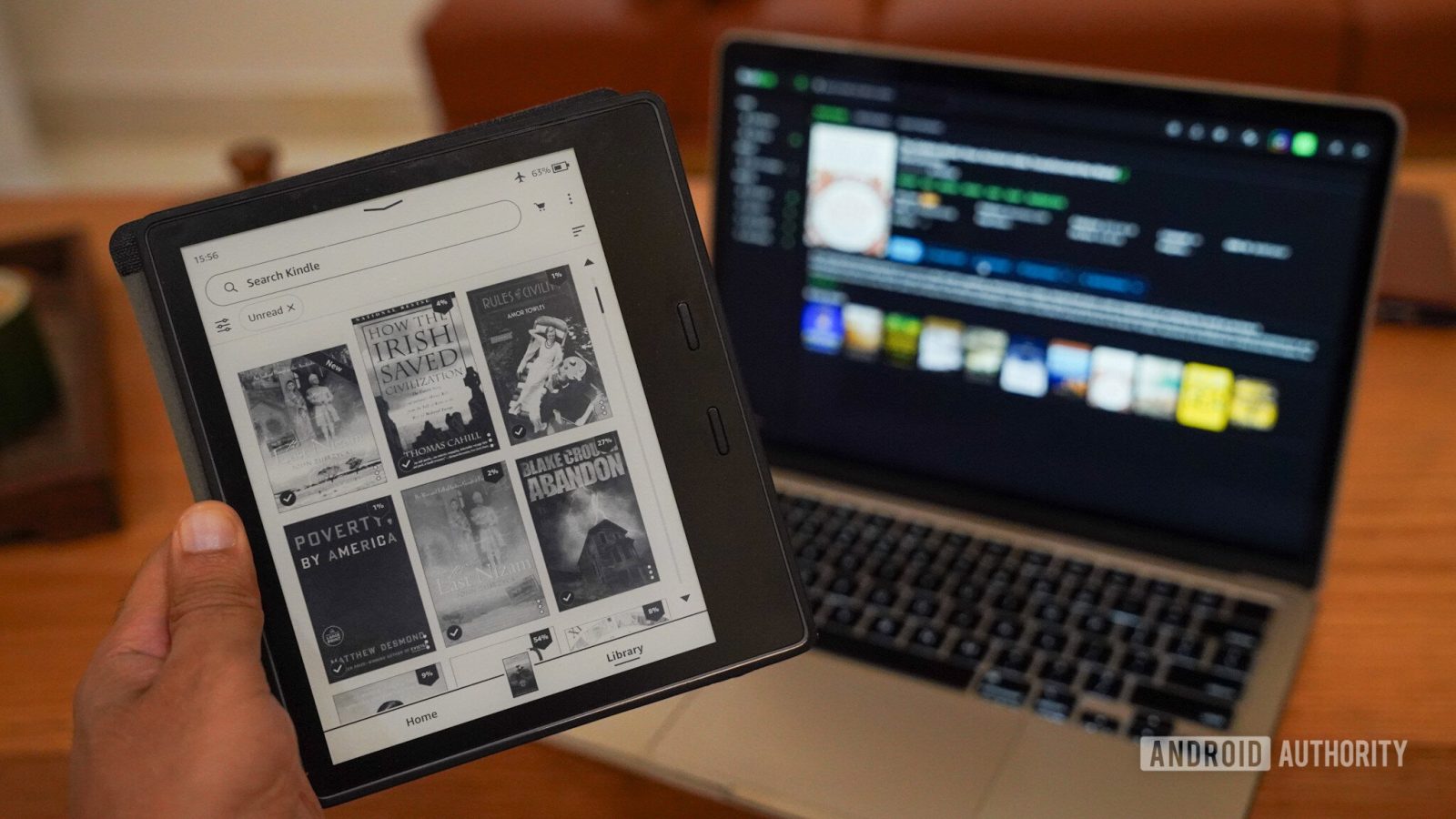
Contents
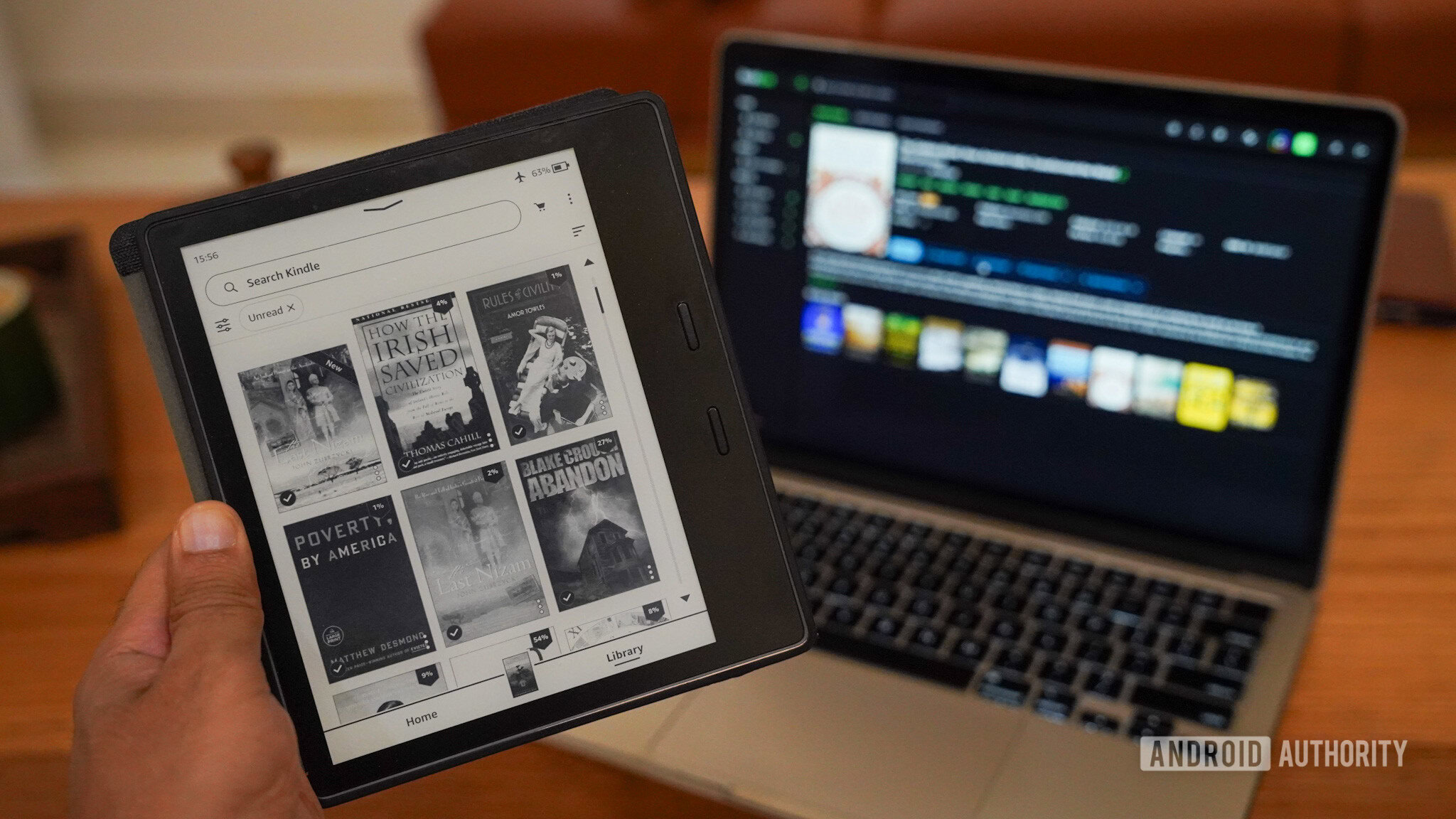
Dhruv Bhutani / Android Authority
If you’ve ever bought an e-book from Amazon, you already know you don’t really own it. Sure, it’s in your Kindle library and you can read it in the app. But try moving it to another device or archiving it somewhere else, and you’ll quickly run into walls. In fact, Amazon has been doubling down on its attempts to curtail access to the books you’ve bought from the Kindle store.
Between DRM, proprietary file formats, and a complete lack of export tools, you are stuck playing by Amazon’s rules. And if they ever decide you have violated some clause buried in the terms of service, your entire library could disappear. It’s a worrisome position to be in, especially for someone like me who has amassed a library of thousands of eBooks.
Amazon sells you access, not ownership, and that access can vanish overnight.
I didn’t think much of this when I first got a Kindle. But as the years passed and my reading habits changed, the friction built up. Not only was I switching between my Kindle and Boox e-reader, I was also downloading more DRM-free EPUBs, PDFs, and research papers. I wanted a single, flexible way to manage all of it. Calibre was the obvious suggestion and my go-to for years. But let’s be real. Calibre looks and feels like an app from the early 2000s. The interface is too clunky, the web UI feels like an afterthought, and even simple tasks take too many clicks. I just wanted something that looked modern and didn’t skip out on features. And especially something that was built from the ground up for multiple users. That’s when I stumbled onto BookLore.
A self-hosted library that just works
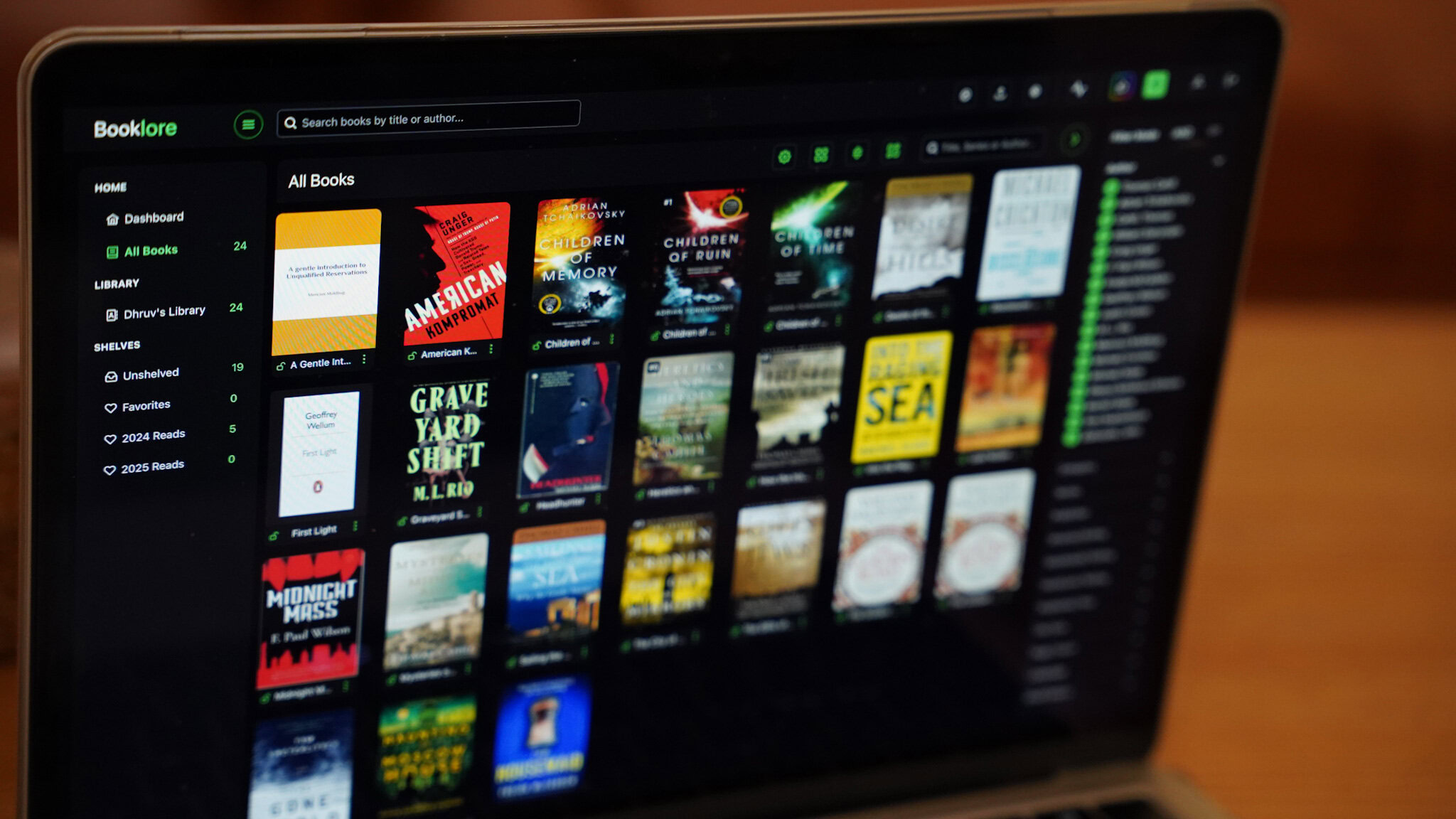
Dhruv Bhutani / Android Authority
BookLore is a self-hosted ebook library built with simplicity in mind. There’s no bloated desktop client, no outdated UI, and here’s my favorite part — it is entirely self-hosted. You own your data and the server it lives on. If you’ve been following my writing recently, you’ll have realised this is a very important factor for me.
Now, if you are used to self-hosting apps, you know that between permissions and dependencies, installation can become an ordeal. Not so with BookLore. I followed the instructions on the app’s GitHub page and had it up and running on my Synology NAS within minutes using Docker. The onboarding process is straightforward and starts with creating a user, spinning a library, and you’re good to go.
Between the modern, customixable design and excellent metadata support, BookLore is a massive step up from Calibre.
Once loaded up, the first thing that struck me was the stunning design. BookLore actually looks and feels like a modern web app. The dashboard is clean, fast, and immediately usable. You can browse your library by author or title, filter by tags, and search through metadata without waiting for anything to load. It picked up my EPUBs and PDFs with zero issues, displayed the correct covers, and gave me intuitive tools to rename, tag, or sort my collection. This alone made it feel better than the vast majority of ebook tools I have used before.
Unlike Calibre and its outdated way of handling metadata that involves plugins and manually refreshing the files, BookLore comes ready to go out of the box. As soon as I dropped EPUBs into the books folder, the app auto-populated the files and started pulling in up-to-date metadata. That was incredible.
BookLore also respects metadata in a way that makes sense. It pulls from Amazon, Goodreads, and Google Books, and if it cannot find something, it lets you fix it quickly without jumping through a maze of forms. I had a folder full of half-labeled EPUBs — stuff I had downloaded over the years and forgotten about, and BookLore organized them in minutes. Even books with messy filenames got matched to proper titles, authors, and cover art. When it could not find the right match, I didn’t mind filling in the gaps because the UI made it painless.
Powerful filtering and tagging
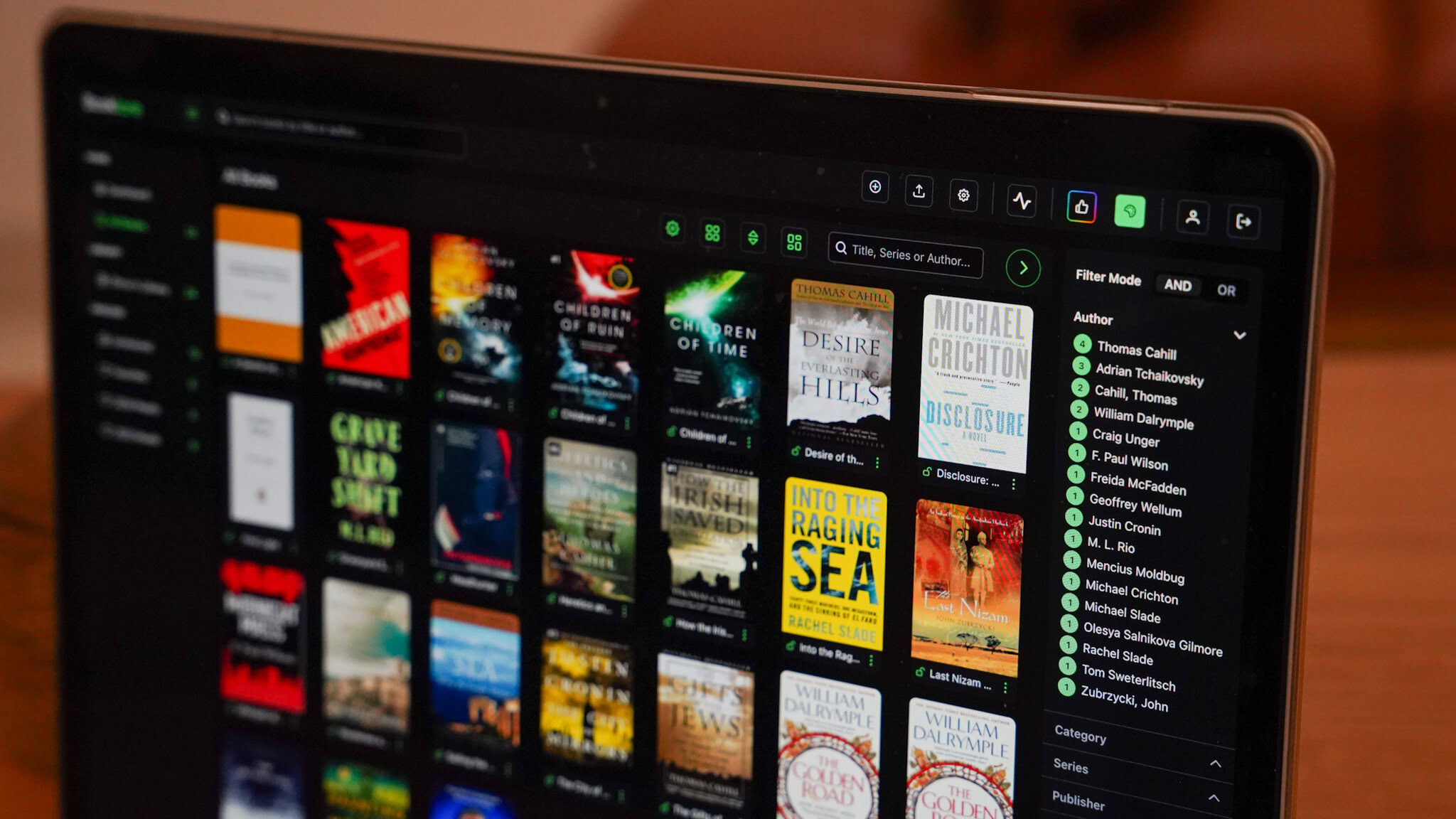
Dhruv Bhutani / Android Authority
BookLore’s real power is in its search and filter system. Not only can you maintain multiple libraries, but you can also create shelves with custom groupings that act like smart tags. You can set up shelves for genres, themes, authors, reading challenges, or any system that fits how you read. I made one for books I want to finish this year, another for work-related research, and one just for travel reads.
What really impressed me was how you can combine filters using conditional logic. You can search for books tagged with “science” and “non-fiction” but not “read,” and BookLore instantly gives you a precise list. Or, mix “horror” and “folk” or “gothic” and dial down the recommendations. It sounds like a small thing, but this kind of flexibility makes it so much easier to stay organized, and find your next favorite book. You are not locked into rigid folders or clunky lists. You build your own system and change it whenever you want.
BookLore’s conditional logic makes it incredibly easy to discover your next favorite read.
Most self-hosted tools are designed for solo users. BookLore is not. It includes a full user management system and OIDC-based authentication, so everyone in the household can have their own account and their own library if needed. You do not have to share a single login or worry about mixing up collections. Each user can manage their books, their shelves, and their tags without affecting anyone else.
There’s even a way to share books via email. This is an excellent value add for Kindle users. It’s been a while since I’ve had to plug my Kindle in to the computer. I’ve got my Kindle email address added to Booklore and all it takes is one tap to shoot the book I want to read straight to my Kindle.
Reading experience and file access
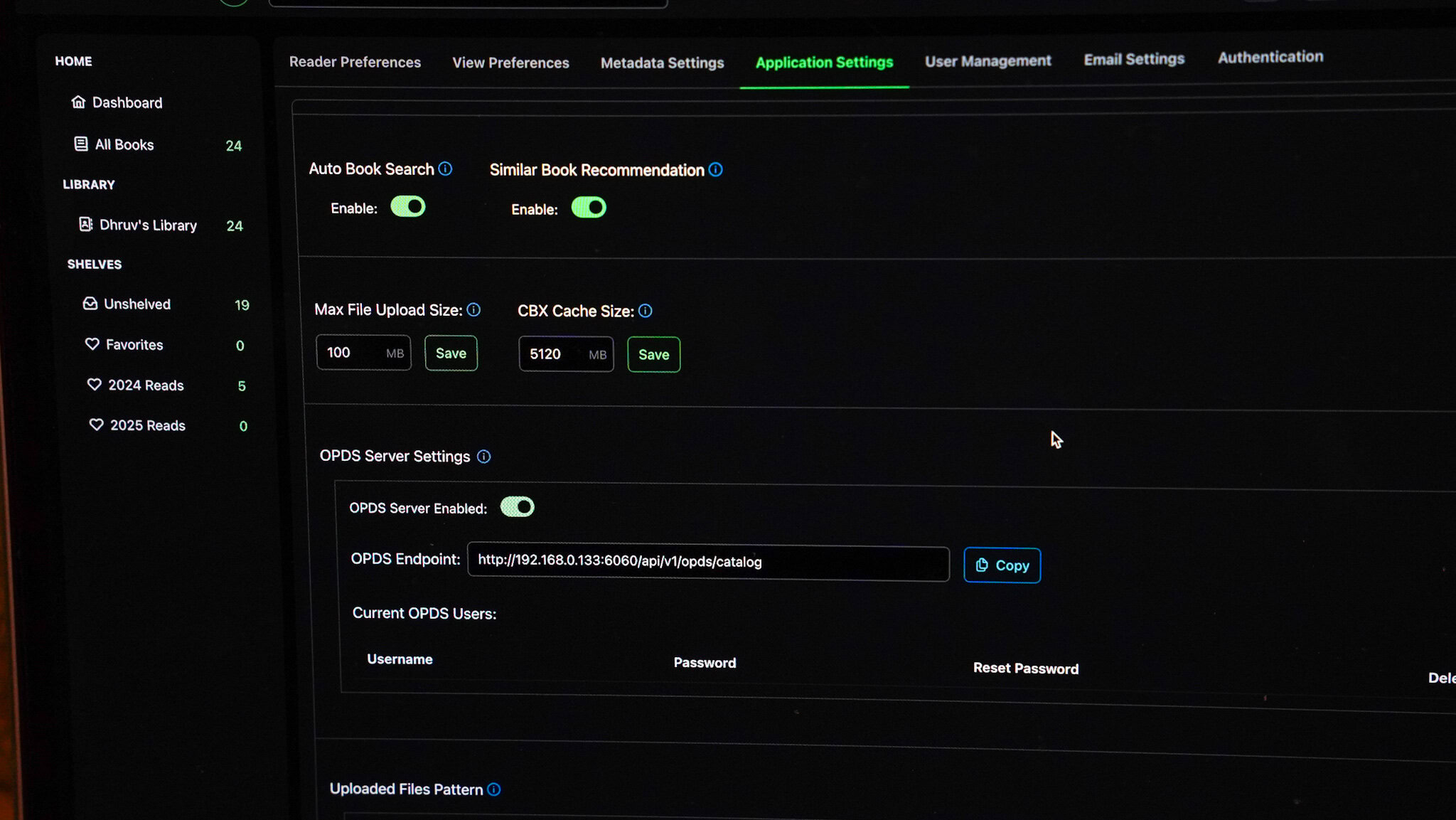
Dhruv Bhutani / Android Authority
While management is at heart of BookLore, it allows you to read books too. But make no mistake, BookLore is not trying to reinvent how you read books. It does not come with a fancy web-based reader, and that’s a good thing. It focuses on being the best possible library manager, not a reading app. That said, it does support tracking reading progress. I’ve not found much use for that yet.
With BookLore and OPDS, it’s like running your own private ebook store — minus the restrictions.
But where BookLore really shines for readers is with OPDS support. OPDS, or Open Publication Distribution System, lets you browse your self-hosted collection from the best e-book reader apps like Moon+ Reader, and even KOReader. That means I can pull up my entire library on my phone or tablet, download what I want, and start reading without ever touching a file manager. It feels like having your own private ebook store.
This is how an ebook library should feel
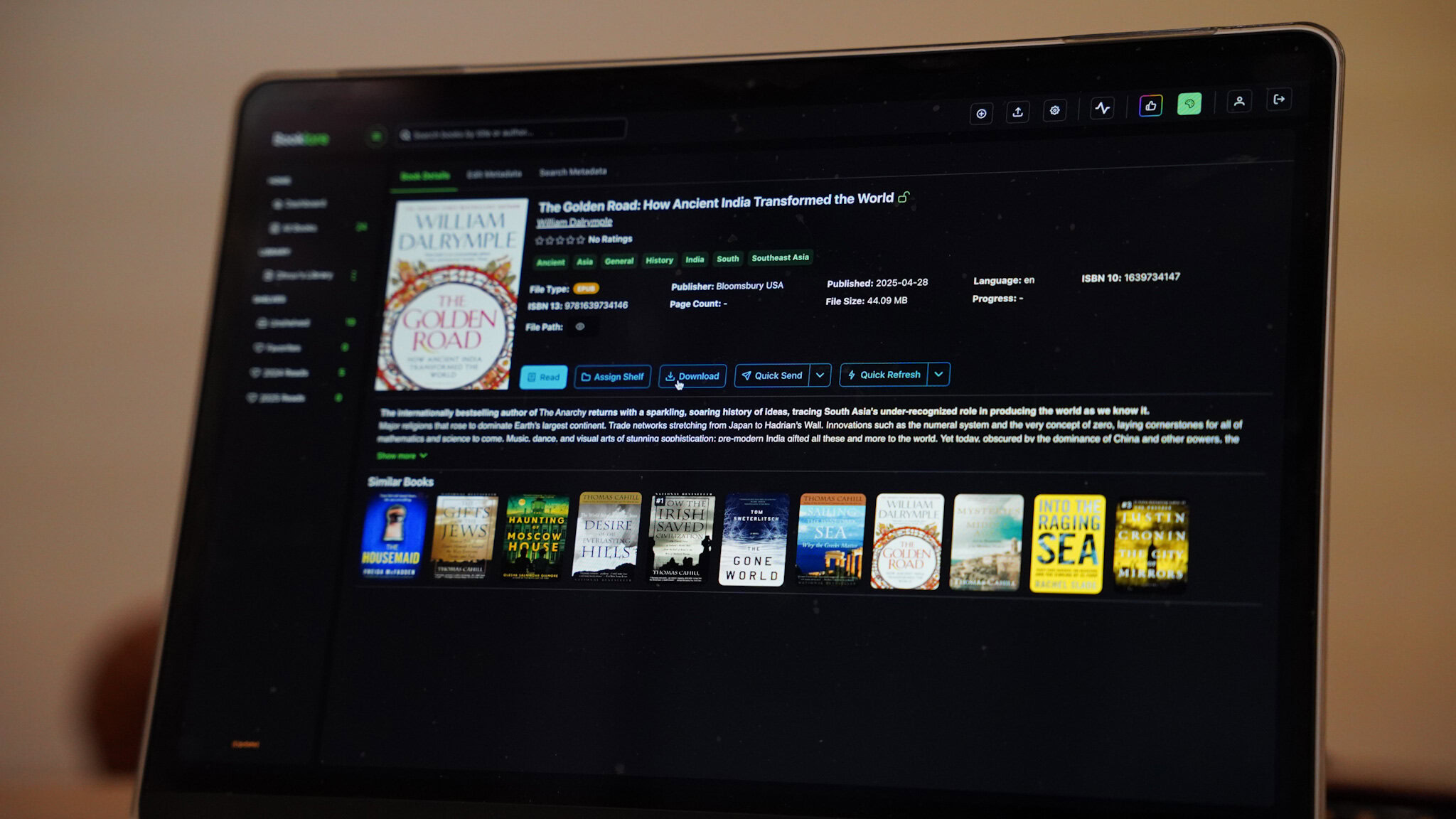
Dhruv Bhutani / Android Authority
I did not expect to enjoy organizing my books this much. But here I am, cleaning up old EPUBs, setting up filters, and tagging everything like it is a collectible archive. BookLore turned a fragmented, frustrating mess into something fun and functional. It made me feel like I was actually in control of my reading life again. And best of all, it makes it easy for friends or family members to tap into my eBook library.
If you are tired of clunky apps, locked-down systems, and the feeling that your ebooks live at the mercy of someone else’s business model, give BookLore a try. It might just make you discover your next favorite read and fall in love with your library all over again.
What’s your reaction?
Love0
Sad0
Happy0
Sleepy0
Angry0
Dead0
Wink0







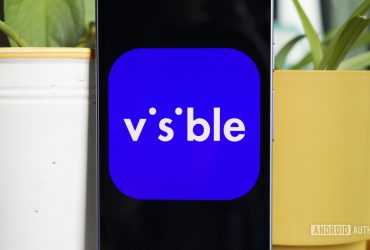
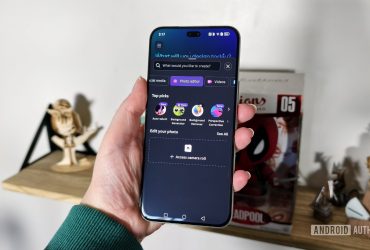
Leave a Reply
View Comments